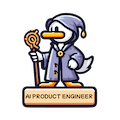E07: Is AI leaving small businesses behind? NVIDIA's rise, McDonald's stumble, and the future of work
In this episode, Chris, Rod, and Max discuss various topics related to AI, including NVIDIA becoming the most valuable company, the challenges of AI adoption for smaller businesses, and the potential impact of AI on inequality. They also touch on the idea of implementing AI taxes and the need for global cooperation in addressing the societal effects of AI.
Like what you hear? Remember to smash that subscribe button for more insights every week!
Takeaways
- NVIDIA's rise as the most valuable company reflects the high expectations and potential of AI in the market.
- The adoption of AI by smaller businesses depends on various factors, including industry, use case, and individual adaptability.
- The impact of AI on inequality is a complex issue, and it requires a nuanced understanding of the different factors at play.
- Implementing AI taxes may have unintended consequences and could hinder innovation and competitiveness.
- Addressing the societal effects of AI requires global cooperation and a focus on supporting individuals affected by job displacement.
Episode Transcript
NVIDIA's Market Dominance and AI Industry Expectations
Max: Welcome to another episode of the Chris Rod Max show, where we discuss the latest AI news. Today, we'll cover NVIDIA becoming the most valuable company, AI adoption in McDonald's ordering systems, how smaller companies are integrating AI, and potential ways to level the playing field in AI adoption.
Let's start with NVIDIA recently surpassing both Microsoft and Apple to become the most valuable company. Chris, as someone with product development experience, what are your thoughts on this and its implications for corporations and innovators?
Chris: Whether NVIDIA is the most valuable company or not isn't particularly relevant - it's just arbitrary numbers. However, there are two important aspects to consider:
- The market is very heated, with most S&P gains this year coming from AI and related companies. The question is whether we're heading towards a deflated expectation phase.
- There are huge expectations for the entire AI industry and the improvements it can bring to the world.
Rod: I see parallels with historical tech booms. In gold rushes, those selling equipment often profit more than the miners themselves. For instance, during the dot-com boom, Cisco briefly became the most valuable company at $500 billion. Today, it's worth less than half that.
Bold statement: NVIDIA's situation could be similar, but there are key differences:
- NVIDIA isn't solely dependent on AI - they have diverse revenue streams including gaming, autonomous driving, and crypto mining.
- Even if the current AI boom ends, NVIDIA is unlikely to lose as much value as Cisco did.
Max: That's an interesting parallel with Cisco. If AI drives efficiency growth similar to the industrial revolution, how valuable could NVIDIA become? It's also worth noting that the world's balance sheet has expanded significantly, so NVIDIA's market cap might be relatively small in that context.
Chris: An important question is how long NVIDIA can maintain its monopolistic position in powerful AI chips. Many companies, including Huawei and Apple, are developing their own AI chip solutions. Once competition increases, the landscape may change dramatically.
Rod: It's not just about hardware power, but also the ecosystem. NVIDIA has a strong software ecosystem, user adoption, and distribution channels. Others, like Intel, are struggling to compete in these areas.
McDonald's AI Ordering System Challenges
Max: Shifting gears, let's discuss McDonald's recent AI chatbot issues. They've suspended their IBM-developed AI ordering system. What are your thoughts on how large corporations are adopting AI?
Rod: We need to understand the complexity of the use case. Drive-through ordering involves background noise, spontaneous changes to orders, and diverse customer behaviors. Converting this audio into structured orders is extremely challenging. The technology might not be ready for this specific application.
Chris: I was surprised by the partnership with IBM, given the advancements in AI since 2021. I wonder if integrating a more recent AI model like GPT-3 would have yielded better results.
Rod: The timeline is crucial here. In 2021, GPT-3 wasn't available, and IBM was likely using its own Watson technologies. This might be more a reflection on IBM's ability to innovate rather than AI capabilities in general.
AI Adoption in Smaller Companies
Max: A recent New York Times article discussed whether AI is meeting the needs of smaller businesses. Chris, given your experience with both large and small companies, what's your perspective?
Chris: I find generalizations about small companies being left behind somewhat misleading. It really depends on the industry and use cases. Company size isn't always the determining factor in AI adoption. Some large companies are restrictive in adopting new technologies due to purchasing cycles and processes, while smaller companies might have an advantage in quickly implementing AI solutions.
Rod: It's important to consider the different categories of small companies:
- Very small businesses (up to 20 employees) often rely on family members for IT support.
- Companies with 20-100 employees typically use third-party IT agencies.
- Only companies with 500+ employees tend to have dedicated IT departments.
Bold statement: Most small businesses still rely on basic tools like Excel spreadsheets rather than advanced software or AI solutions.
Max: I agree that we can't make blanket statements about small company adoption. It often comes down to individual initiatives within organizations.
Rising Inequality from AI Adoption
Max: The IMF recently warned about profound concerns over rising inequality due to AI. What are your thoughts on this potential disruption?
Rod: I believe the biggest divide in society is between those who adopt AI tools and those who don't. AI users can significantly increase their productivity, while those not using these tools are being left behind. The technology is moving so fast that there's a growing gap in awareness and integration of AI into workflows.
Chris: I wouldn't use the word "inequality" here. There are differences in adoption, but a key factor is how open-minded and adaptive individuals are to new technologies. Future generations growing up with AI will likely develop very different workflows, which could lead to more democratized use.
Rod: There's a counter-argument that heavy AI users might become "dumber" in certain ways, struggling with focus and learning from scratch. Those not adopting AI might have an advantage in learning new things without relying on AI as a crutch.
Chris: It depends on how we measure intelligence. Reading habits have changed over time, but that doesn't necessarily mean we're less intelligent now than 50 years ago.
Government Responses and AI Taxes
Max: Some governments are considering AI taxes to address potential job displacement. What are your thoughts on this approach?
Chris: I have strong opinions on this. The premise is that AI will displace jobs, reducing income tax revenue. Some governments are considering corporate AI taxes to compensate. However, there are two main counter-arguments:
- It could harm a country's innovative competitiveness.
- If not implemented globally, it could create economic disparities between nations.
Rod: This is similar to global challenges like climate change. Any solution needs to be implemented globally to be effective. However, we do need to consider how to support workers displaced by AI.
Max: The parallel with climate change is apt. Both issues require global cooperation and consideration of fairness between developed and developing nations.
Rod: Interestingly, AI might be affecting higher-income jobs in fields like marketing, finance, and creative roles. This could lead to more support for protective measures from those in traditionally secure positions.
Max: That's a good point about the potential shift in who is affected by technological change. To summarize our discussion:
- We explored NVIDIA's market dominance and industry expectations.
- We discussed the challenges of implementing AI in McDonald's ordering systems.
- We examined AI adoption in smaller businesses, noting the importance of individual use cases and industries.
- We considered the potential for AI-driven inequality and possible government responses, including AI taxes.
Thank you for listening to the Chris Rod Max show. If you enjoyed this episode, please share it with your friends and subscribe for more AI insights and discussions.




